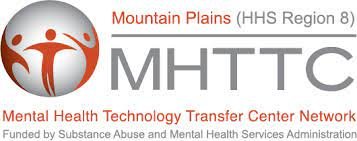NASHIA has partnered with the Mental Health Technology Transfer Center Network of Mountain Plains (Region 8) to bring this important series to you. This 4-part series is designed for the first responder community including law enforcement, parole, and probation personnel, EMTs, and any other members of the community engaged in emergency and front-line efforts.
The series kicks off with a 90-minute foundational introduction to Traumatic Brain Injury (TBI). In this session, participants will learn what TBI is, its common signs and symptoms, how it can occur, and why conventional intervention methods often don't work with individuals living with TBI. We encourage all participants to attend the first session, it will establish a baseline of understanding for all participants as we move thru the series.
This training series will provide participants with tips and strategies for first responders who may encounter individuals living with a history of brain injury when responding to calls in the community. People living with brain injury have higher rates of mental health conditions and problematic use of substances and are often overrepresented among vulnerable populations. First responders may encounter individuals and their family members affected by brain injury when responding to crisis situations such as individuals expressing suicidal ideation and intent, those who are homeless, victims and perpetrators of intimate partner violence, and justice-involved individuals. Participants will become familiar with common clues of a history of brain injury and strategies to engage with individuals and deescalate as needed when encountering those living with this often-hidden disability.
Learning Objectives:
Attendees will be able to describe at least 3 common brain injury-related impairments
Attendees will be able to identify three signs that an individual may have a history of brain injury
Attendees will learn 3 strategies to safely engage with and redirect individuals living with a history of brain injury
Recording and Supporting Materials Here
Other Series Sessions:
Intensive Workshop 1 for Law Enforcement and EMT Personnel
Recording and Supporting Materials Here
Intensive Workshop 2 for Probation and Parole Personnel
Recording and Supporting Materials Here
Wrap-Up Panel

